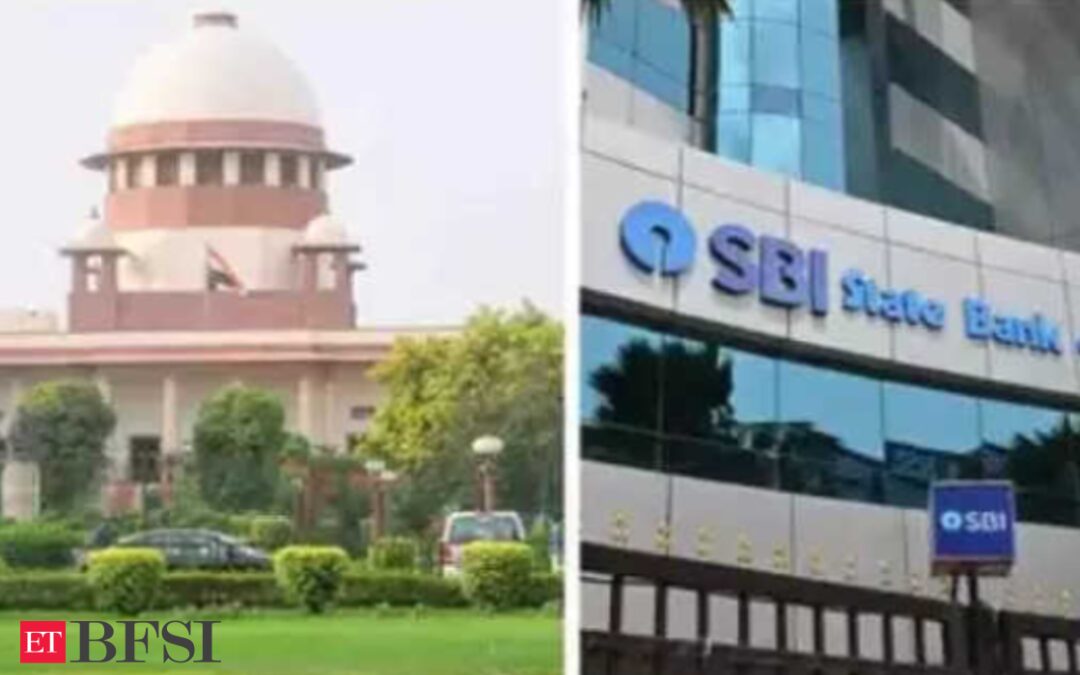NEW DELHI: Supreme Court on Monday directed the State Bank of India (SBI) to disclose the details of electoral bonds encashed by political parties to the Election Commission by March 12. The court warned SBI that it may face consequences for ‘wilful disobedience’ if it fails to comply with the deadline. The SBI had requested an extension until June 30, which was rejected by the court.
Additionally, the court directed the Election Commission to publish the information provided by the bank on its official website by March 15. The five-judge constitution bench, headed by Chief Justice D Y Chandrachud, passed the order. The bench also included Justices Sanjiv Khanna, B R Gavai, J B Pardiwala, and Manoj Misra.
Earlier on February 15, the same bench had declared the Centre’s electoral bonds scheme “unconstitutional” and ordered the EC to disclose donors, donation amounts, and recipients by March 13. The top court also instructed the SBI, the authorized financial institution under the scheme, to provide details of electoral bonds purchased since April 12, 2019, to the EC by March 6.
Opposition leaders have welcomed the court’s order and believe it will reveal the donors behind political funding through electoral bonds.
Setback for SBI
- In a major blow to the State Bank of India (SBI), the Supreme Court pulled up the bank over delay in disclosure of details about electoral bonds encashed by political parties and said it expects some candour from the bank, which is the authorised financial institution under the scheme.
- “Our judgment is dated February 15. We are on March 11. In past 26 days, what steps you have taken? Your application is silent on that. We expect some candour from the State Bank of India,” CJI DY Chandrachud said.
No extension
- The five-judge Constitution bench, led by CJI Chandrachud, dismissed the SBI’s plea for an extension until June 30 to furnish the details, stating that the information was readily available.
- It directed the SBI to disclose the details by March 12 and the EC to publish them by March 15.
- The bench, including Justices Sanjiv Khanna, B R Gavai, J B Pardiwala, and Manoj Misra, warned the SBI of potential contempt action for “wilful disobedience” if it fails to comply.
Deadline for EC
- The court instructed the Election Commission to publish the information provided by the SBI on its official website no later than March 15, further emphasising the urgency of transparency in the electoral process.
SBI’s collation challenge
- During the hearing, senior advocate Harish Salve, representing the SBI, stated that the bank stopped issuing electoral bonds per the court’s February 15 directive but requested additional time, citing the complexity of collating information from different silos.
- The apex court clarified that the necessary information was easily accessible to the bank, stored in distinct silos, and explicitly stated that there was no requirement for matching donor and recipient details, urging the SBI to present a direct and transparent disclosure.
Landmark verdict
- The February 15 landmark verdict declared the electoral bonds scheme “unconstitutional” and mandated disclosure of donor details, donation amounts, and recipients by March 13.
- The SBI, as the authorized financial institution, was instructed to submit electoral bond details purchased since April 12, 2019, by March 6.










